
New research by NordLocker reveals that people mostly use email to share their files. Despite posing the biggest security risk, email was the most common method of sharing files for 58% of US and 56% of UK users.
“Even though email is one of the most popular targets for cyberattacks, people still trust it with their personal information,” says Oliver Noble, an encryption specialist at NordLocker. “If your email gets hacked, all of your attachments, such as sensitive documents or private photos, can fall into the hands of criminals.”
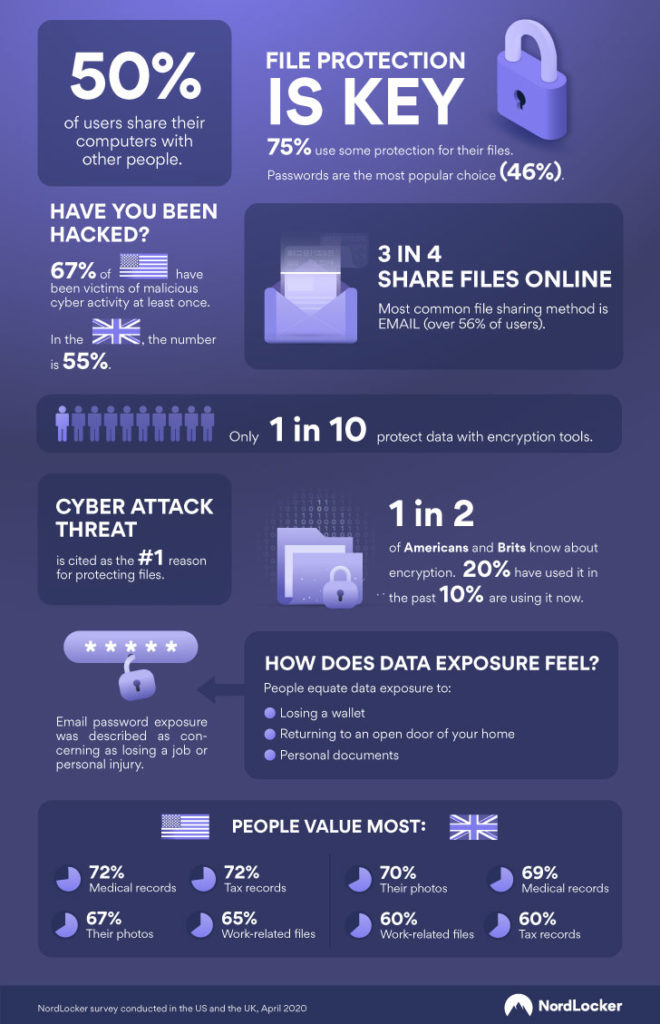
According to the survey, other ways people use to share their files include cloud services (35%), messaging apps (27% of US and 46% of UK users), and external drives (14-15%). File transfer services like WeTransfer were the least popular among the respondents (10%).

Data from the US.

Data from the UK.
The file encryption tool NordLocker has anonymously surveyed 1,400 people in the UK and the US to find out about users’ habits when it comes to file storage and sharing as well as to understand how people protect their sensitive data.
Exposure to cyber threats
More than half of the respondents (67% of US and 55% of UK users) admit to having fallen victim to malicious cyber activity at least once. Almost every second user from the US and more than every third user from the UK have had their computer infected with a virus. As many as 3 out of 10 US users and 2 out of 10 UK users have clicked on a link in a scam email, while 7% of users from the US and 8% of those from the UK were asked to pay a ransom to regain access to their own files.
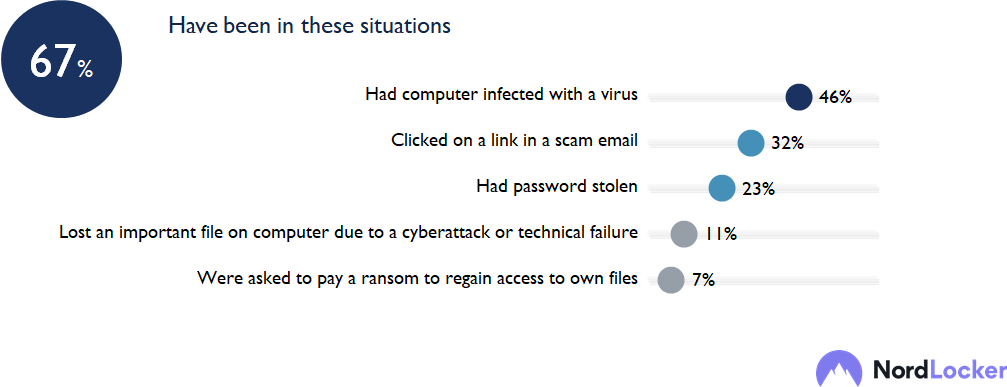
Data from the US.
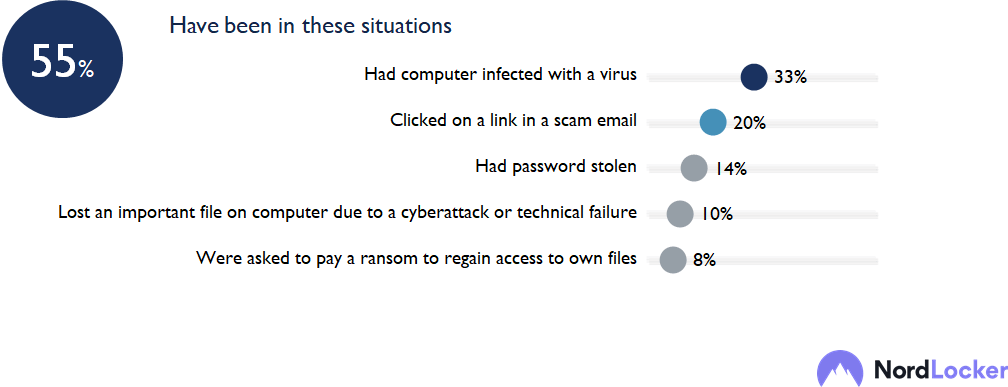
Data from the UK.
How does exposure of private data feel? Losing a personal computer or finding out someone has access to it is almost as concerning as losing a wallet, having important documents stolen, or returning home to an open front door, the NordLocker study has revealed.
“Surprisingly, the research also indicates that a stolen email password concerns people no less than injury or losing a job,” NordLocker’s expert comments.
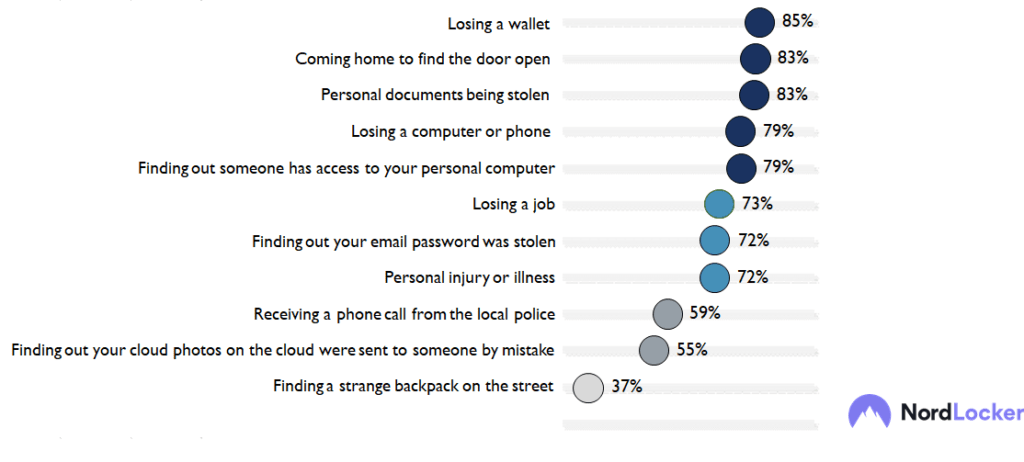
% of those who would be VERY and EXTREMELY concerned with the incident.
Data from the US.
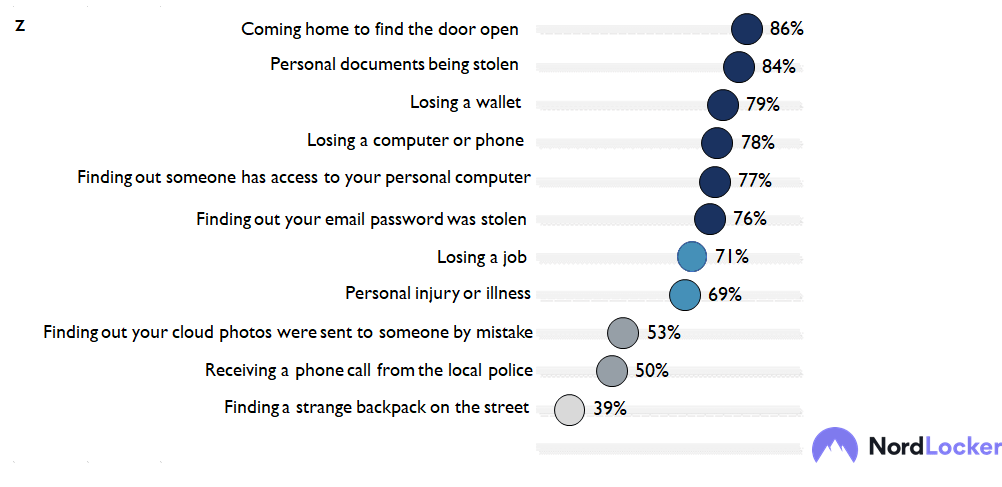
% of those who would be VERY and EXTREMELY concerned with the incident.
Data from the UK.
Those who have been victims of cyberattacks tend to take their digital security more seriously. For example, 39% of US users who haven‘t experienced any malicious cyber activity don‘t protect their files. The number decreases to only 16% among those who have. In the UK, the numbers are 32% and 19% respectively.
What people store on their computers and how they value it
Despite the similar results in the US and UK, there was a difference in what users consider as private information and how valuable they think it is. For example, US users equally value their tax records, personally identifiable information (PII), and medical records. 72% of respondents who store these types of files on their computers consider this information as very and extremely valuable. Personal photos and work-related data are also regarded as very valuable by US users (67% and 65% respectively).
In comparison, users from the UK value their photos more than any other type of files they store on their computers: 70% of respondents chose photos over PII and medical records (69%), work-related data (60%), and tax records (60%).
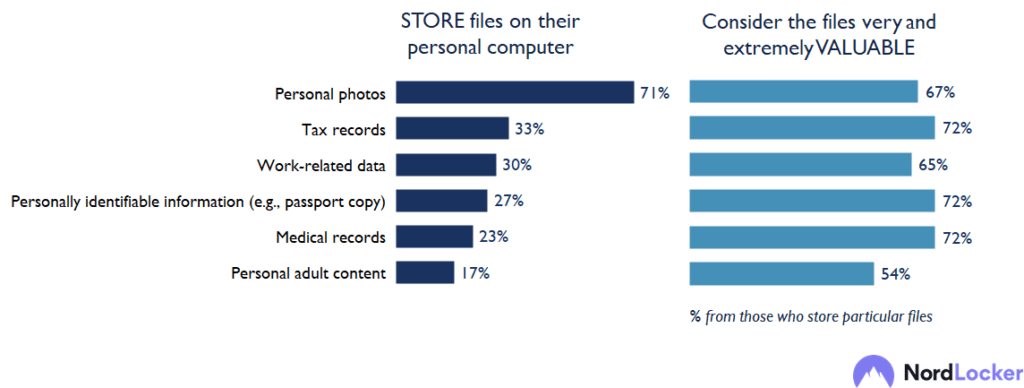
Data from the US.
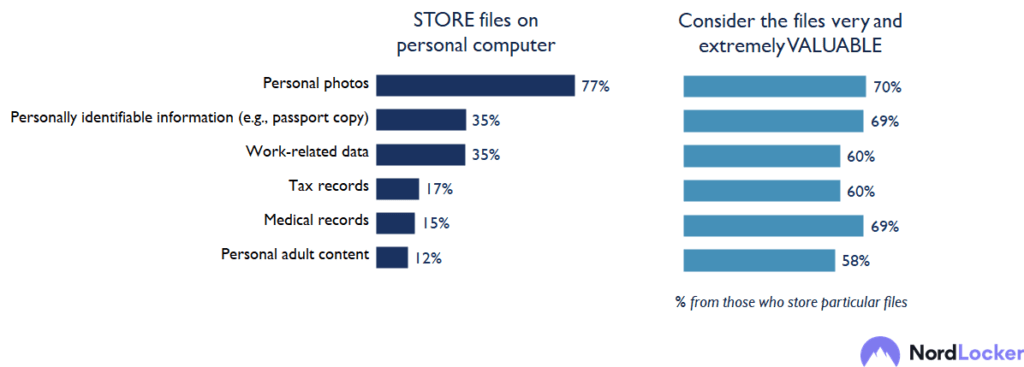
Data from the UK.
“Although users consider photos as the most valuable, these types of files don’t hold any sensitive information that could be used in a scam. On the other hand, various documents, tax information, and medical records contain social security numbers and bank account details, which could cause people financial harm or pose a risk of identity theft,” warns Oliver Noble.
When it comes to personal adult content, 17% of users from the US and 12% of those from the UK keep files like nudes or sex videos on their computers. Surprisingly, despite this type of information being highly compromising, people consider it the least valuable (54% of US users against the UK’s 58%).
How people protect their files
In both the US and the UK, every second person shares their personal computer with other people. These are usually spouses, children, or parents. As security risks increase when more than one person has access to a computer, people tend to protect their files in one way or another. 75% of respondents claim they use some sort of protection for their files, with passwords being the most popular choice (46%). 16% of respondents say they use encrypted cloud storage, while 12% say they practice hiding their files on a computer manually.

Data from the US.

Data from the UK.
“Even though the safest way to protect files is encryption, NordLocker research shows that only 1 out of 10 people uses an encryption tool to protect their files,” explains Oliver Noble. “The results indicate that cybersecurity is still murky waters to some computer users, and public education on the matter needs improvement. There’s a silver lining to this, as half of the respondents (50% of US users and 56% of those from the UK) have heard about the possibility to protect their files with encryption”.


